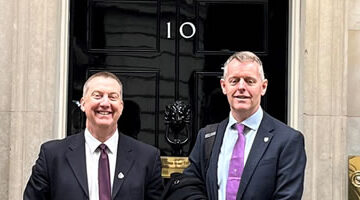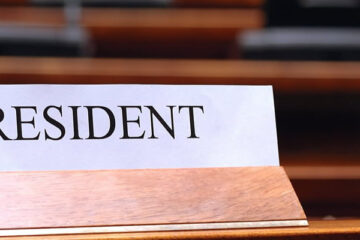President’s Blog March 2014
And so to March, and with it the hope that Winter is behind us. Of course there is actually very little difference in patient numbers and pressures in the Winter when compared to any other season. It is however often the case of a ‘straw breaking the camel’s back’ and indicates how fragile many systems are. Recent meetings have revealed that many organisations start planning for Winter in September whilst the DH started back in January! I have been pressing the case that we need to build a system that has year round resilience so that we can avoid absurd letters asking us to have specific plans for ‘heat waves’, ‘heavy snow’, ‘prolonged cold’, ‘seasonal flu’, and any other dramatic two word tabloid headline.
Many of you will know that I, Kevin Reynard – our Dean, and several others have twitter accounts. My own is @CEMpresident and I am delighted to hear the instant opinions of fellows and members. On the back of the success of our ’10 priorities document’ we have launched a hashtag to highlight progress (#CEM10).
Reviewing these ten, it is heartening to note that fellows working for the College have enabled run through training to commence this year and transferable competences to be recognised so that trainees can move into EM training without going back to year 1.
HEE have funded both extra ACCS EM posts and agreed an enhanced 4 year programme MTI programme with the Home Office
I recently met with Adrian Masters who is an executive director at Monitor. He stated that reducing emergency admissions was a key aim of the organisation and to that end he agreed that investing in more emergency medicine consultants was both evidence based and highly cost effective. He went on to suggest that CCGs had 3 funding sources from which to allocate monies to fund these appointments. These are 1. The 70% of the acute admission tariff allocated to urgent care boards 2. The £250 million ‘Winter Pressures’ money 3. From 2015 the £2 billion moved into the ‘Better Care Fund’ . He also agreed to undertake further analysis of acute care tariffs to better understand why all acute Trusts lose money providing acute care.
On March 4th the College is hosting a national summit reviewing the challenges this winter has posed, and in particular looking to publish examples of actions to be taken nationally, regionally and locally to increase resilience. These deliberations will inform our discussions with DH, NHSEngland and health departments in Scotland, Wales and Ireland.
The College has been successful in raising its profile through the media but has also worked to ensure that recent coverage is less about problems and more about solutions and showcasing where and when EM is sustainable. This does not mean that I or my colleagues are unaware that many departments are understaffed, overwhelmed and morale is low. These circumstances have, and continue to be, widely reported. However much progress has been made, and I am optimistic will continue to be made, and we must ensure we promote the specialty at this critical time to reverse the consequences of failed recruitment and retention.
Back now to Twitter and the opportunity to smile and question some people’s reasoning. Twitter allows people to ‘follow’ you. This means they receive immediate notification of any message you post or ‘tweet’. Each follower has the option of posting a short biography. One has to ask why someone who has chosen to ‘follow’ me would describe themselves thus:- ‘Musician, scientist, home-educator, skeptic. I like sewers, mineshafts and absinthe, and hanging around underwater Victorian follies in a mankini’. Yet more evidence that life is stranger than fiction. This may well be a rich source of anecdotes and no doubt will bring some light relief to the presentations I have been invited to give in Manchester, Newcastle and Cardiff in the next few months. I really do consider meeting colleagues in the countries or regions where they work, to be both a pleasure and a key opportunity to ensure the College is ‘doing its job’. All feedback is welcome and these occasions provide a relatively rare few hours for us all to meet and share opinions.
This letter has highlighted some of the utility & quirks of social media. Many of you will be sceptical of its value. If nothing else I would encourage you to create a twitter account and follow some of the leaders in EM education, including Simon Carley, Cliff Reid and Andy Neill. They regularly post links to great research studies and eLearning sites and content. As this can all be accessed in seconds from your phone it makes for ideal coffee time/ train journey CPD.
Let me finish by taking this opportunity to wish you all some time with your friends and families during the Easter holiday.
Dr Cliff Mann FCEM FRCP
President
The College of Emergency Medicine
@CEMPresident


0 Comments